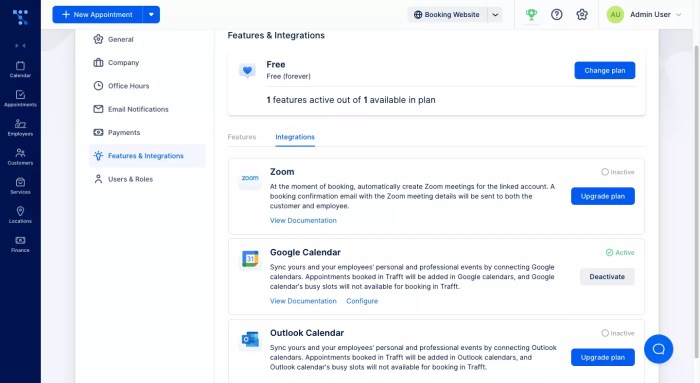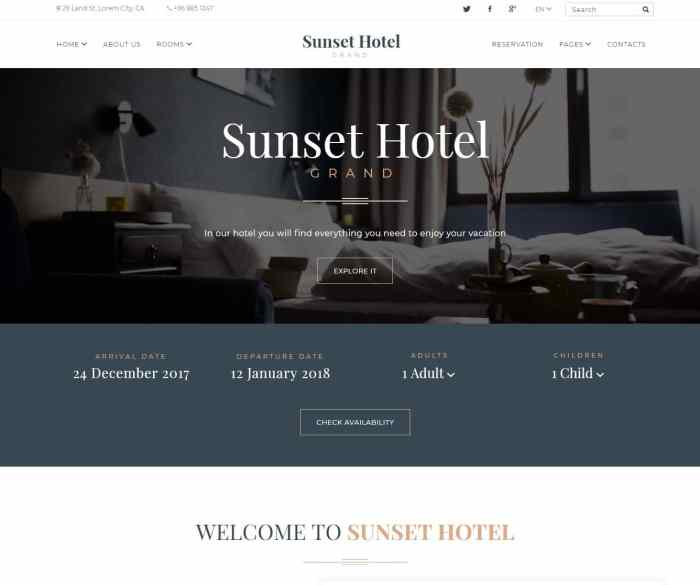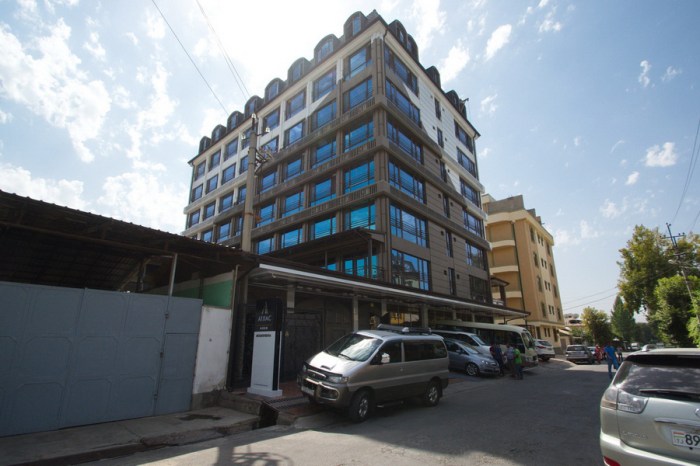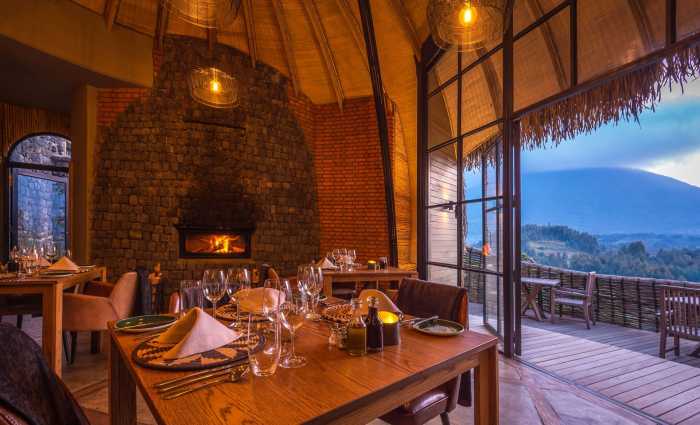Best Way to Book Hotels Your Ultimate Guide
Best way to book hotels is a crucial question for travelers, and this guide explores various methods, from online travel agencies to direct booking. We’ll compare different approaches, highlighting pros and cons, and discuss factors influencing hotel choice, like location and traveler type. You’ll discover strategies for finding last-minute deals and advanced booking techniques to secure the best rates.
This comprehensive guide covers a wide range of booking methods, including online travel agencies (OTAs), direct booking, and using travel agents. It also delves into crucial factors like location, amenities, and room types, providing insights for different traveler profiles. Furthermore, it offers practical tips for a smooth booking process, from checking cancellation policies to handling potential issues. The guide also explores alternative accommodation options like vacation rentals and hostels, and ultimately helps you choose the best option based on your specific needs.
Methods for Booking Hotels
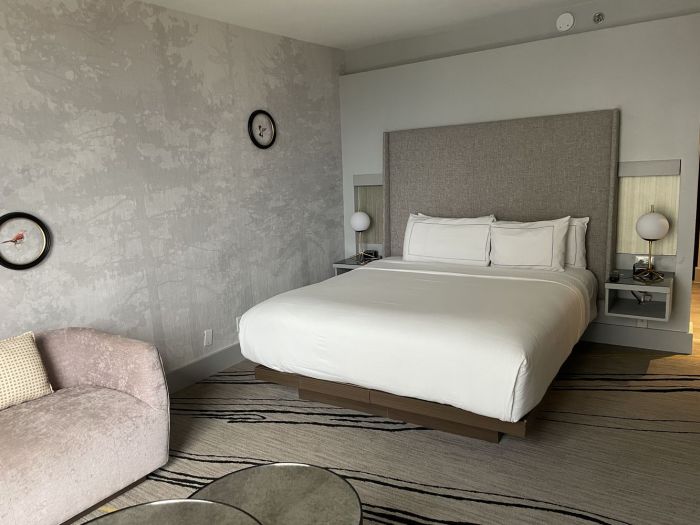
Source: culturetravel.com
Choosing the right method for booking a hotel can significantly impact the overall experience and cost. Careful consideration of various options, from online travel agencies to direct booking, can lead to a more favorable outcome. Understanding the pros and cons of each method empowers travelers to make informed decisions and potentially save money.
Comparing Online Travel Agencies (OTAs) and Direct Booking
Online Travel Agencies (OTAs) act as intermediaries, offering a wide selection of hotels from various providers. Direct booking, on the other hand, involves booking directly with the hotel. Each method presents distinct advantages and disadvantages.
OTAs often provide a vast inventory, enabling users to compare prices across multiple hotels and destinations. This extensive selection can be beneficial for those seeking comprehensive options. However, OTAs typically add a service fee to the price, potentially increasing the total cost compared to direct booking. Additionally, customer support may be less responsive due to the centralized nature of the service.
Direct booking often yields lower prices, especially for popular hotels or during peak seasons. This is because the hotel avoids the commission fees charged by OTAs. However, direct booking might offer fewer choices and require more research to find the best deals. Customer support is usually handled directly by the hotel, often leading to more personalized service.
Different Booking Methods
Various avenues facilitate hotel reservations beyond OTAs and direct booking. Travel agents provide personalized assistance, leveraging their expertise to navigate the booking process and find suitable options. Mobile applications offer convenient access to a range of hotels, often including real-time booking and price comparisons. Dedicated hotel websites provide an avenue for direct booking, sometimes offering exclusive deals and packages not available through intermediaries.
Payment Options
A variety of payment methods are available for hotel bookings. Credit and debit cards are common, enabling secure transactions. Some hotels may accept alternative payment options, such as digital wallets or local payment methods, tailored to specific regions. The availability of various payment methods varies among hotels and should be confirmed during the booking process.
Strategies for Finding Last-Minute Deals
Securing last-minute hotel deals requires agility and vigilance. Monitoring hotel aggregators and websites for flash sales or special offers can yield favorable results. Utilizing flexible travel dates and destinations can broaden the scope of available discounts. Booking during the off-season or shoulder seasons often yields lower prices compared to peak travel times.
Comparison Table of Booking Methods
| Feature | OTA | Direct Booking | Travel Agent |
|---|---|---|---|
| Price | Potentially higher due to commissions | Potentially lower due to no commissions | Variable, depending on agent’s negotiation skills |
| Flexibility | High, often allows comparison across many properties | May be limited, depending on hotel policies | High, with personalized guidance |
| Customer Support | Potentially less responsive, centralized support | Often more responsive, personalized service | Personalized, expert assistance |
| Booking Process | Simple, often streamlined online process | Straightforward, often direct on the hotel website | Personalized guidance through the process |
Factors Influencing Hotel Choice
Choosing the right hotel is crucial for a positive travel experience. Beyond simply finding a place to stay, careful consideration of various factors can significantly impact your comfort, enjoyment, and overall trip success. These factors range from the obvious, like location and amenities, to more subtle aspects like traveler type and online reviews.
Understanding these influences allows you to make informed decisions and select a hotel that best suits your needs and preferences. This is especially important for maximizing your budget and ensuring your trip aligns with your expectations.
Location Considerations, Best way to book hotels
Hotel location is a paramount factor in many travel decisions. Proximity to attractions, transportation hubs, and desired activities plays a significant role in the overall travel experience. A hotel near popular landmarks or tourist destinations can save valuable time and transportation costs, potentially making your travel more efficient. Conversely, a hotel in a quieter area might be preferable for those seeking a more relaxed atmosphere. Consider how your chosen location relates to your travel plans and budget, as location directly affects the overall cost and accessibility of your trip.
Amenities and Room Types
Amenities and room types are crucial aspects to consider when selecting a hotel. The availability of specific amenities, such as a pool, gym, or spa, significantly influences the experience. For instance, families with young children might prioritize a hotel with a kids’ club or a pool, whereas business travelers might prioritize a hotel with a business center or meeting rooms. Likewise, room types vary greatly, offering different levels of comfort and space. A king-size bed might be preferable for couples, while a larger suite might be ideal for families. Consider the specific needs of your group or individual preferences when choosing a room type.
Traveler Preferences and Filtering Tools
Different traveler types have distinct preferences. Business travelers often prioritize convenient locations, meeting rooms, and high-speed internet. Families might prioritize amenities like kids’ clubs, family-friendly restaurants, and spacious rooms. Couples often look for romantic settings, comfortable rooms, and access to restaurants or entertainment. Understanding these distinctions is key to selecting a hotel that best meets your specific needs. Booking platforms offer extensive filtering tools to help narrow your search. These tools allow you to specify criteria such as price range, star rating, amenities, and location, enabling you to quickly identify hotels that align with your preferences. Using these tools efficiently can save you time and effort in the hotel booking process.
Impact of Reviews and Ratings
Online reviews and ratings play a significant role in shaping hotel choices. Guest experiences, as documented in reviews, offer valuable insights into a hotel’s quality, service, and overall atmosphere. Positive reviews often highlight exceptional service, comfortable rooms, and convenient locations. Conversely, negative reviews can highlight potential issues with cleanliness, noise levels, or service. Utilizing these reviews to inform your decision allows you to make a more informed choice, potentially avoiding potential problems and ensuring a more pleasant experience. Before finalizing your hotel selection, consider the collective sentiment of reviews and ratings, as they offer a comprehensive view of the hotel’s quality.
Key Considerations for Various Traveler Types
| Traveler Type | Key Considerations | Preferred Amenities |
|---|---|---|
| Business Travelers | Convenient location, proximity to business centers, reliable transportation, high-speed internet, and meeting rooms | Business center, meeting rooms, high-speed internet, 24-hour business services, convenient access to airports or train stations |
| Families | Spacious rooms, kids’ clubs, family-friendly amenities, proximity to parks or attractions, safety measures for children | Kids’ clubs, pools, playgrounds, restaurants, high chairs, and family suites |
| Couples | Romantic ambiance, comfortable rooms, proximity to restaurants or entertainment, relaxing atmosphere | Romantic settings, comfortable rooms, spa access, fine dining options, cozy balconies |
Tips for a Smooth Booking Process

Source: shadahotels.com
Booking a hotel can be a straightforward process, but careful attention to detail can ensure a smooth and hassle-free experience. Understanding the intricacies of cancellation policies, efficient booking management, and complaint resolution strategies is crucial for avoiding potential issues. This section provides practical advice for navigating the entire booking journey.
Importance of Checking Cancellation Policies and Fine Print
A thorough review of cancellation policies is vital. Understanding the terms and conditions, including any penalties for canceling or changing bookings, is essential before confirming. This includes carefully scrutinizing the fine print for additional fees, restrictions, or blackout dates that might not be immediately apparent. For example, some hotels may charge a penalty for canceling a reservation within 24 hours of arrival or impose a no-refund policy for cancellations. Paying close attention to these details can save you from unexpected charges or disappointments.
Strategies for Managing Multiple Bookings Efficiently
Managing multiple hotel bookings can become complex. Utilizing a spreadsheet or dedicated booking management software can help track details like reservation dates, room types, and contact information for each booking. This organized approach streamlines the process, reducing the risk of errors and ensuring all reservations are accounted for. Creating a centralized document or digital file with all reservation details, including confirmation numbers, contact information, and cancellation policies, will help maintain a clear overview of all your bookings.
Handling Issues or Complaints After Booking
Addressing potential issues promptly is crucial for a positive experience. If a problem arises after booking, maintaining detailed records of the issue and any communication with the hotel is vital. Documentation of phone calls, emails, or online interactions helps in resolving conflicts effectively. Maintaining a record of the date, time, and content of all correspondence will facilitate the process of resolving the issue in a structured and timely manner.
Obtaining Confirmation and Receipt of Bookings
Confirmation of a hotel booking is a critical step in the process. Ensure you receive a confirmation email or document with all relevant booking details, including room number, dates, names of guests, and any special requests. This confirmation serves as proof of your booking and aids in managing the booking process. Always keep a copy of the confirmation and any supporting documents in a safe place. Furthermore, requesting a receipt of payment is also recommended. This ensures you have a record of the transaction for accounting and future reference.
Step-by-Step Guide for Booking a Hotel Room
This guide articulates the steps for booking a hotel room, highlighting potential pitfalls to avoid.
- Research and Selection: Identify your desired destination, dates, and room type. Research hotels that align with your preferences and budget. Consider reviews and ratings from previous guests.
- Comparison and Price Check: Compare prices across various booking platforms and directly with the hotel website. Don’t rely solely on one platform, as prices can vary.
- Review Cancellation Policy: Carefully read the cancellation policy before proceeding. Be aware of potential penalties or restrictions.
- Confirmation and Payment: Double-check all details before finalizing the booking. Ensure that the information is accurate and that you understand the payment terms.
- Obtain Confirmation and Receipt: Save a copy of the confirmation email or document for future reference.
- Manage Multiple Bookings: Develop a system to manage multiple bookings efficiently, such as using a spreadsheet or a dedicated booking management application.
- Handling Issues or Complaints: Document any issues or complaints promptly, including communication with the hotel.
Advanced Booking Strategies
Booking hotels strategically can significantly impact the cost and experience of your trip. Proactive planning, especially during peak seasons, often leads to better deals and more desirable accommodations. This section explores advanced booking methods, including leveraging loyalty programs, utilizing price tracking tools, and maximizing rewards points.
Advanced planning and strategic booking can lead to substantial savings and more desirable accommodation choices, particularly during peak travel seasons. By understanding the intricacies of hotel booking strategies, you can optimize your travel experience and ensure a more enjoyable and cost-effective journey.
Benefits of Booking in Advance
Booking hotels in advance, especially during peak seasons, is crucial for securing the best rates and availability. Early bookings often provide access to a wider range of rooms and options, allowing for more flexibility in choosing the perfect accommodation. Moreover, booking ahead allows for better budgeting and travel planning, minimizing stress and maximizing enjoyment. For instance, booking a family vacation package in advance during summer holiday periods often means you’ll have more choice in terms of hotels and room types, potentially at a lower price than waiting until the last minute.
Utilizing Hotel Loyalty Programs
Hotel loyalty programs offer significant advantages for frequent travelers. Understanding and utilizing these programs can yield substantial savings and exclusive perks. Joining a loyalty program typically involves minimal effort and can provide access to special rates, exclusive amenities, and expedited check-in/check-out procedures. For example, many programs offer members discounts on room rates, free breakfast, or priority access to upgrades.
Employing Price Tracking Tools
Price tracking tools can assist in monitoring hotel prices and identifying the best deals. These tools automatically monitor prices for selected hotels and notify you of any changes. This allows you to secure the best possible rate by comparing various booking platforms. For example, websites like Kayak, Google Flights, and others automatically track prices, alerting you to significant price drops, making it easier to snag a better deal on your chosen hotel.
Booking Accommodations Across Price Ranges
Securing accommodations across different price ranges requires strategic planning. Budget-conscious travelers can leverage alternative accommodations like hostels or guesthouses, while those seeking luxurious experiences can consider premium hotels with upscale amenities. Mid-range options offer a balance between cost and comfort. For example, a family trip could involve a mid-range hotel for the majority of the stay and a more budget-friendly option for one night.
Leveraging Travel Rewards Points
Travel rewards points can be redeemed for hotel bookings, significantly reducing the cost of your stay. Many travel programs allow you to accrue points through various activities, such as credit card spending or airline travel. These points can be redeemed for hotel stays, offering a valuable way to save money on your travel budget. For example, you could use your airline miles to book a hotel stay, effectively offsetting a portion of the cost.
Role of Travel Aggregators
Travel aggregators provide a comprehensive overview of hotel options, comparing prices and features across various platforms. These aggregators streamline the booking process by offering a centralized platform to compare and contrast different hotels, facilitating an informed decision-making process. For instance, a travel aggregator can display multiple hotel options in a specific city, including their prices, ratings, and amenities, allowing travelers to compare options efficiently.
Exploring Alternative Accommodation Options: Best Way To Book Hotels
Beyond traditional hotels, a wealth of alternative accommodation options caters to diverse needs and preferences. These options offer varying levels of comfort, amenities, and experiences, allowing travelers to tailor their stay to their budget and desired level of immersion in the local culture. Understanding the pros and cons of each type is crucial for making an informed decision.
Alternative accommodation options provide a unique opportunity to engage with local communities and environments. They often offer more personalized experiences and can be more budget-friendly than traditional hotels, but it’s important to be aware of potential differences in terms of service, amenities, and safety.
Comparison of Accommodation Types
Different types of accommodation cater to various travel styles and budgets. Understanding the advantages and disadvantages of each is key to making an informed choice. Careful consideration of these factors helps travelers make an informed decision that aligns with their travel preferences.
| Accommodation Type | Pros | Cons |
|---|---|---|
| Hotels | Established infrastructure, consistent service standards, wide range of amenities (pools, restaurants, gyms), and safety and security are generally high. | Can be expensive, may lack personalized experiences, and often less interactive with the local community. |
| Vacation Rentals | More space and privacy than hotels, often fully equipped kitchens, potential for cost savings compared to hotels for larger groups, a sense of home. | Less structured service than hotels, potential for inconsistent cleanliness or maintenance, may require more self-reliance. |
| Hostels | Highly budget-friendly, social environment, opportunity to meet fellow travelers, and often located in central areas. | Shared spaces may be noisy, lack of privacy, basic amenities, varying levels of cleanliness and safety. |
Vacation Rentals
Vacation rentals, such as houses, apartments, or cottages, offer a more home-like experience. They often provide more space, privacy, and kitchen facilities, potentially leading to cost savings for larger groups. However, these rentals may lack the consistent service standards of hotels, and maintenance or cleaning might be inconsistent.
Hostels
Hostels provide a budget-friendly option for travelers seeking a social environment and meeting other travelers. Centrally located hostels often offer a vibrant atmosphere. However, shared spaces can be noisy, and privacy is limited. Standards of cleanliness and safety can vary between hostels.
Airbnb and Similar Platforms
Platforms like Airbnb offer a wide range of accommodations, from private rooms to entire houses. This flexibility allows travelers to find unique and often affordable options. However, potential risks include inconsistent quality control and a lack of established support systems compared to traditional hotels.
Cultural Considerations
When choosing alternative accommodation, considering the local culture and environment is essential. Respecting local customs and traditions is important, and choosing accommodations that support local businesses is a way to engage with the community. For example, staying in a locally-owned guesthouse can provide a deeper understanding of the local culture and support the local economy.
Potential Risks
Potential risks associated with alternative accommodation options include inconsistent quality control, lack of established support systems, and varying levels of safety and security. It is important to thoroughly research and review reviews from previous guests before booking any alternative accommodation. Checking for local regulations and ensuring proper safety precautions are taken is recommended.
Final Thoughts
In conclusion, finding the best way to book hotels depends on your individual needs and preferences. Consider factors like price, flexibility, and customer support when comparing different booking methods. Don’t overlook the importance of research and careful consideration of traveler type and desired amenities. By applying the strategies and tips in this guide, you can make informed decisions and ensure a smooth and enjoyable travel experience.
